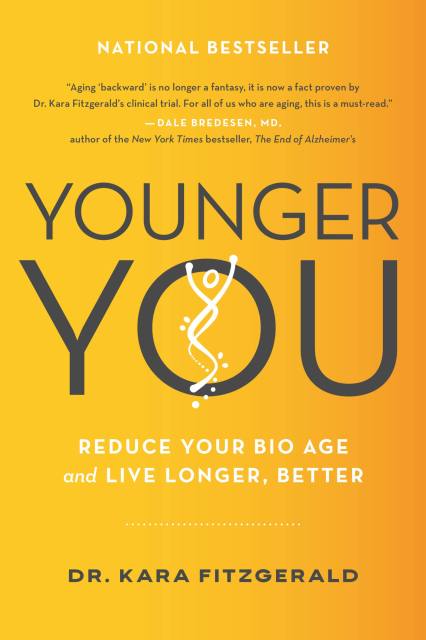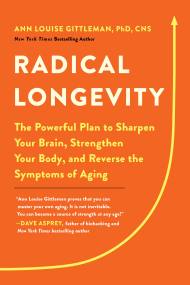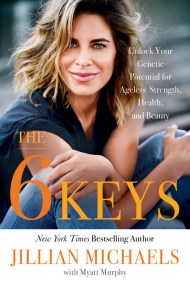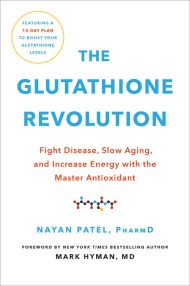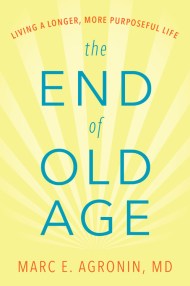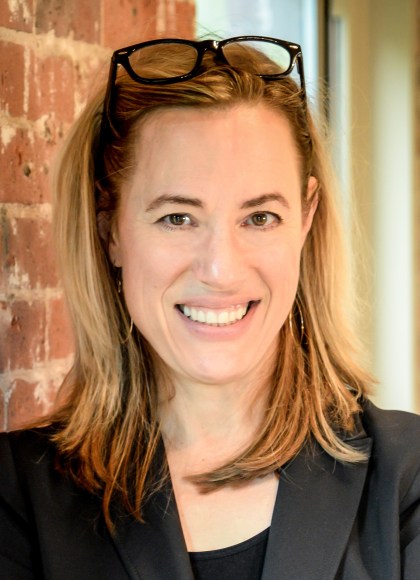Promotion
Sign up for our newsletters to receive 20% off! Shop now. Exclusions apply.
By clicking “Accept,” you agree to the use of cookies and similar technologies on your device as set forth in our Cookie Policy and our Privacy Policy. Please note that certain cookies are essential for this website to function properly and do not require user consent to be deployed.
Younger You
Reduce Your Bio Age and Live Longer, Better
Contributors
Formats and Prices
Price
$19.99Price
$24.99 CADFormat
Format:
- Trade Paperback $19.99 $24.99 CAD
- ebook $14.99 $19.99 CAD
- Hardcover $30.00 $38.00 CAD
- Audiobook Download (Unabridged) $31.99
This item is a preorder. Your payment method will be charged immediately, and the product is expected to ship on or around January 17, 2023. This date is subject to change due to shipping delays beyond our control.
Also available from:
Based on the groundbreaking study that shaved three years off a subjects' age in just eight weeks, discover a proven, accessible plan to prevent diseases and reduce your biological age.
It’s true: getting older is inevitable and your chronological age can only move in one direction. But you also have a biological age, which scientists can measure by assessing how your genes are expressed through epigenetics. Exciting new research shows that your bio age can actually move in reverse—and Dr. Kara Fitzgerald’s groundbreaking, rigorous clinical trial proved it’s possible. By eating delicious foods and establishing common-sense lifestyle practices that positively influence genetic expression, study participants reduced their bio age by just over three years in only eight weeks!
Now Dr. Fitzgerald shares the diet and lifestyle plan that shows you how to influence your epigenetics for a younger you. In Younger You you’ll learn:
- It’s not your genetics that determines your age and level of health, it’s your epigenetics
- How DNA methylation powerfully influences your epigenetic expression
- The foods and lifestyle choices that most affect DNA methylation
- Simple swaps to your daily routines that will add years to your life
- The full eating and lifestyle program, with recipes and meal plans, to reduce your bio age and increase vitality
- How to take care of your epigenetic expression at every life stage, from infancy through midlife and your later decades
We don’t have to accept a descent into disease and unwellness as we age as inevitable: when you reduce bio age you reduce your odds of developing all the major diseases, including diabetes, cancer, and dementia. With assessment tools for determining your bio age, recipes, and plans for putting it all into practice,Younger You helps you repair years of damage, ward off chronic disease, and optimize your health—for years to come.
-
"It is a new era—aging 'backward' is no longer a fantasy, it is now a fact proven by clinical trial. Dr. Kara Fitzgerald, lead author of this paradigm-shifting trial, now describes her approach in her new book, Younger You. This is the first book in the new era of 'aging reversal' medicine and health, and for all of us who are aging, this is a must-read."Dale Bredesen, MD, professor and author of the New York Times bestseller, The End of Alzheimer’s
-
"Younger You challenges the long held notion that we are helpless as it relates to the seemingly inexorable decline in our physical health as time marches on. Dr. Fitzgerald makes it clear that we can absolutely change our destiny as it relates to various parameters associated with aging and provides a straightforward program for achieving this important goal."David Perlmutter, MD, author, #1 New York Times bestseller, Grain Brain, and Brain Wash
-
"After years of working alongside Dr. Fitzgerald on reaching and maintaining optimal health, I can safely say she is one to look out for to not only live a longer life, but a healthier and more vibrant one."Amy Myers, MD, New York Times bestselling author of The Autoimmune Solution and Thyroid Connection
-
"A lifestyle program has never been more worthwhile or more revolutionary than Dr. Fitzgerald’s in Younger You. She shows how the simple things like nutrition, exercise, and daily routines can profoundly affect your quality of life—and that it’s never too early or too late for the whole family to start thinking about optimizing their epigenetic expression.”Sara Gottfried, MD, three-time New York Times bestselling author of The Hormone Cure
-
"Finally a well-explained, dynamic, science-backed guide to optimizing your health by affecting the core of what makes all of us tick—our genes. I’ve been using Dr. Fitzgerald’s program in my practice for years and I’m so pleased this information is now accessible to all."Mark Hyman, MD, fourteen-time New York Times bestselling author and founder and director of The UltraWellness Center
-
“I first learned the power of nutrition, exercise, and lifestyle to dramatically improve our lives when treating my multiple sclerosis. Now Kara Fitzgerald has taken it a step further with her clinically-proven program for a longer and more vibrant life.”Terry Wahls, MD, author of The Wahls Protocol: A Radical New Way to Treat All Chronic Autoimmune Conditions Using Paleo Principles
-
"As a scientist and educator in nutritional epigenetics and longevity, I commend Kara's extraordinary ability to make science accessible and actionable to a lay audience. Her guest lecture for my course on the biology of longevity at Stanford University drew rave reviews from my students. I will recommend Kara's new book Younger You to my students who want to deepen their knowledge and practice of nutritional longevity.Dr. Lucia Aronica, PhD
-
"Dr. Fitzgerald is among the first to realize that epigenetics is destined to be a game-changer for 21st Century medicine. Now she shares her program to modify our epigenetics safely, with exercise, a natural diet and a surprising array of other practices. Let's try it!"Josh Mittteldorf, PhD, author of Cracking the Age Code
-
"Younger You leads us through a compelling narrative linking food, genes, epigenetic programming of genes by life experiences and how this guides us to take control of our own lives. The book provides an engaging, clear and understandable presentation of the complex science of epigenetics and the developmental origins of health and disease for the general audience."Moshe Szyf, PhD, McGill University Medical School
-
"Dr. Fitzgerald has published groundbreaking research that proves that we can change the aging of our body through a specific lifestyle intervention program. Now she has made this program available for all of us to benefit from in this extraordinary book. This is a 'must' for anyone interested in what they can do in slowing the aging process naturally."Jeffrey Bland, PhD, president, Personalized Lifestyle Medicine Institute
- On Sale
- Jan 17, 2023
- Page Count
- 512 pages
- Publisher
- Hachette Go
- ISBN-13
- 9780306924842
Newsletter Signup
By clicking ‘Sign Up,’ I acknowledge that I have read and agree to Hachette Book Group’s Privacy Policy and Terms of Use
